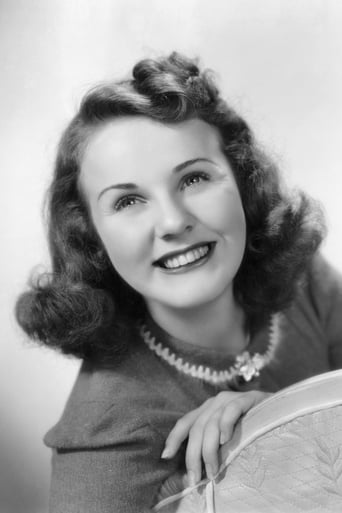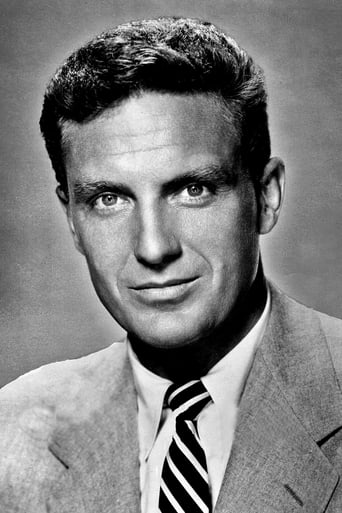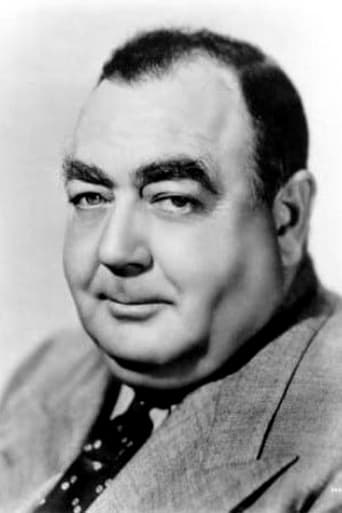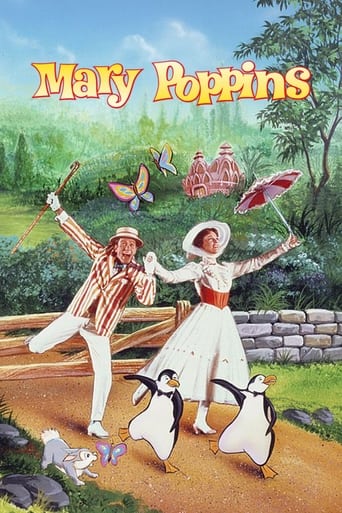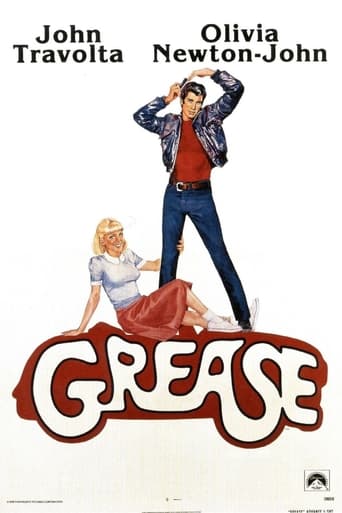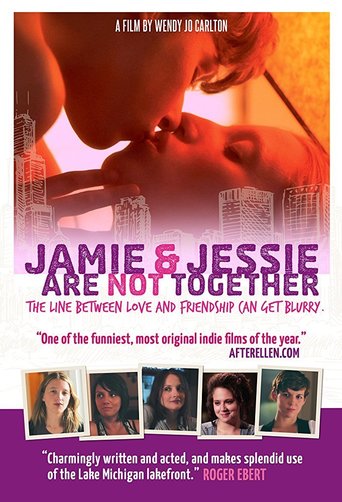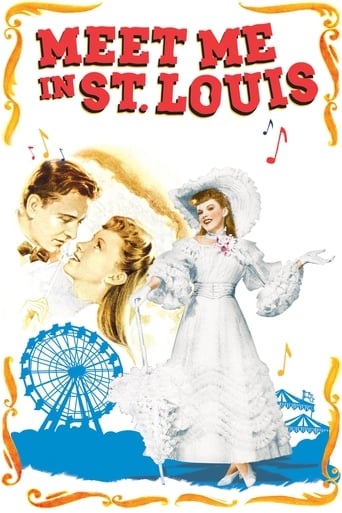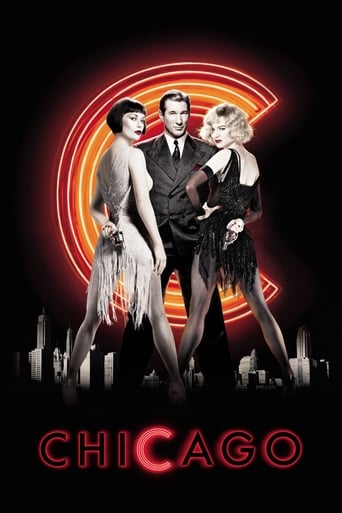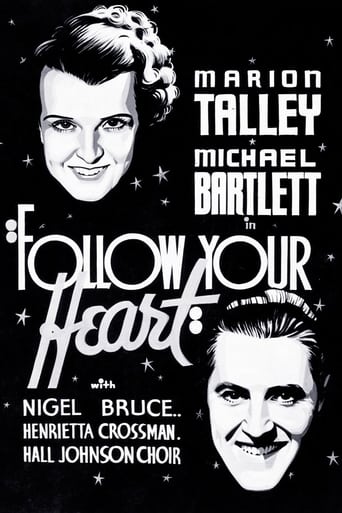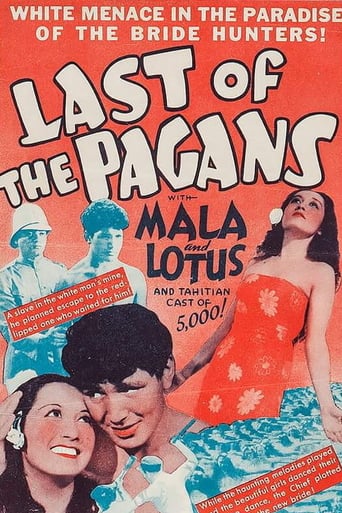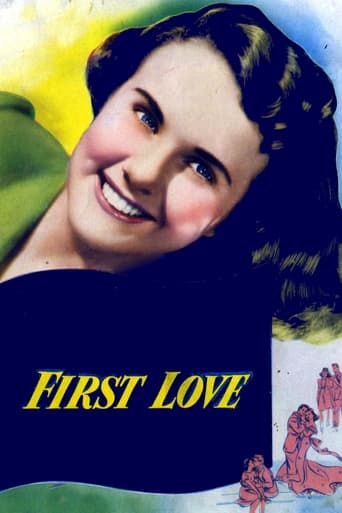
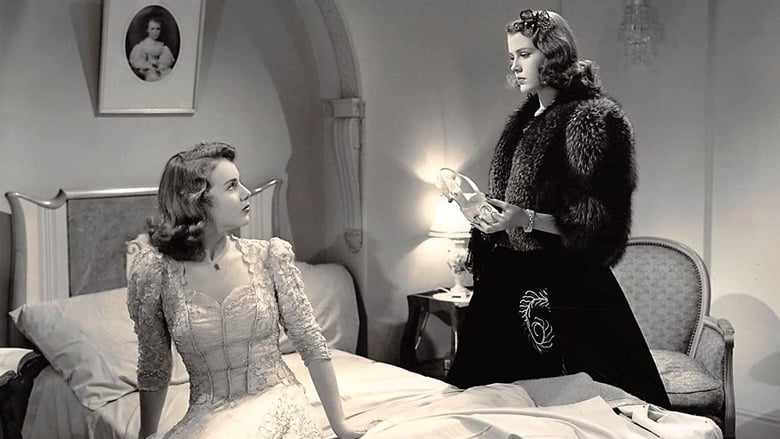
First Love (1939)
In this reworking of Cinderella, orphaned Connie Harding is sent to live with her rich aunt and uncle after graduating from boarding school. She's hardly received with open arms, especially by her snobby cousin Barbara. When the entire family is invited to a major social ball, Barbara sees to it that Connie is forced to stay home. With the aid of her uncle, who acts as her fairy godfather, Connie makes it to the ball and meets her Prince Charming in Ted Drake, her cousin's boyfriend.
Watch Trailer
Cast


Similar titles
Reviews
Great Film overall
There's no way I can possibly love it entirely but I just think its ridiculously bad, but enjoyable at the same time.
It's simply great fun, a winsome film and an occasionally over-the-top luxury fantasy that never flags.
This is one of the best movies I’ve seen in a very long time. You have to go and see this on the big screen.
Two very young actors make up this cinderella story, Robert Stack (just 20) is the hero and Deanna at 18 still has quite a bit of puppy fat on her face (I didn't like the hair style - was it to make her seem older? ). She, an Orphan like Cinderella lands up in - not step mother here, but rich maternal uncle's home. Here of course there was one cousin, of the step-sister type the other cousin of opposite gender, the aunt and even the uncle are really not villainish by nature, but villain by the lack of empathy, not only towards our Cinderella, but towards the whole world. There are of course nice songs too, has to be when Deanna is there. The movie is well made, and very watch-able, and of course the end is predictable in any fairy tale. Along with Deanna there are two more lovely girls, Helen Parish (the Cousin), a quite frequent co-actor of Deanna, and June Storey, another Canadian, both trying to win the Prince Charming.There are two interesting things here, one puzzled me, till I understood what it was and other one, the main song, wasn't properly visualised.If there is a call to sing a Strauss' waltz, even if you specify it is the Junior's, unless you know which one it is, no one can sing it. More so, it had been told to have a bit of modifications, some bars were changed, probably to cater to her voice-spectrum by the singer, Mme Cottellini, who was supposed to sing it, mentioned. Even more problem in it was, that even had she caught the opening, she still would have been in for a trouble, since it was a mix of three of Strauss' Waltzs, Schatz-Walzer, the beautiful Rosen aus dem Süden(the main body) and lagunen Walzer (finale) : unless one knows that, it would be impossible.The interesting and wonder-ful (not necessary wonderful) portion was, after this waltz, when Deanna was dancing with Stack, I observed there was something in her left hand, what was it I wondered.... and then it struck me. That was the cloak-ticket. And she had retained it, held between the forefinger and middle finger of her hand, till she exchanged it for cloak. In fact she had been playing with it, even during the 'spring waltz'. This was unexpected that one would go for that much precision. I wonder who thought about it, Koster or Deanna ? I am sure the viewers won't have noticed it, or even wondered if it wasn't there (you could have some pocket or fold in the dress to keep it).
Reviewers before me have ably stated the performers and crew who have contributed to this timeless presentation of the Cinderella story.I join with a previous enthusiast who identifies the Strauss medley sung by Miss Durbin at the Royal Ball as being singularly excellent. The third melody which was unidentifiable at that time turns out to be a waltz from Strauss' little known operetta "A Night in Venice". Thus we have: 'Life is sweet and gay. . .' the Schatz waltz from the "Gypsy Baron"; 'This is Maytime. . . .' from the "Southern Roses"; and finally, 'Spring in my heart.. . .' from " A Night in Venice". It is the 'Gondellied' or Venetian Boat Song from that operetta. And yes, the accompaniment flourish at the end includes a few bars of the '1001 Nights' from the "Gypsy Baron" before finishing with 'Voices of Spring'. The medley has been seamlessly sewn together by Hans J. Salter, and Ralph Freed supplied the lyrics. A joy to listen to.The success of the movie is first and foremost the performance of Deanna Durbin, of course, but turning her rendition of "One Fine Day" into a happy ending is to be recognized as an achievement by the producers and writers. All in all, a movie for everyone.
If you are fortunate enough to be blessed with a golden goose, you take very good care of it. The lovely singing sensation from Winnipeg was leaving her adolescent years behind and developing into an extremely attractive young woman when Universal dared to expose her to 'her first screen kiss'. The story didn't have to have great lines; just a happy ending. "Cinderella" updated was deemed sufficiently safe.Hollywood discovered that in the middle of the Depression, movie fans loved to escape into the swank life of millionaires with large mansions requiring equally large servant staffs. Thus, our Cinderella had only to endure the acid tongue of Helen Parrish who seemed to make a small career of being mean to Deanna Durbin a la Jane Withers and Shirley Temple. With only one evil stepsister (first cousin in this instance)with whom to contend, our heroine had two good fairies. One was the finishing school principal, Kathleen Howard, and the other was the butler played ably by Charles Coleman. Other recognizable supporting cast members included Mary Treen, Frank Jenks, Eugene Palette and Thurston Hall. There are four numbers which Miss Durbin sings in "First Love"."Home, Sweet Home" is sung by the graduating heroine at the request of her classmates. "Amapola" is sung at the occasion of her first encounter with the servant staff at Uncle Jim's mansion.The piece de resistance which captures Prince Charming's attention at the ball is s Strauss medley strung together seamlessly into what sounds like a single song but consists of brief melodies from "The Gypsy Baron"(Schatz waltz); "Roses From the South"; a third melody unidentifiable at this writing; and an orchestral finish with "Voices of Spring". Lyrics were provided by Ralph Freed and musical direction by Charles Previn who conducted many of Deanna Durbin's recordings for Decca.The final piece is 'One Fine Day' from Madame Butterfly which has been done by other sopranos such as Grace Moore and Rise Stevens but not with the intent and purpose of a good fairy to win the hearts of a panel of judges nor more surprisingly, with a happy ending which Puccini certainly never intended.If you want realism, then this would certainly not be your cup of tea but if you are even considering a Deanna Durbin movie, then you are probably not in that group. If you want to learn more about this amazing screen star who rivaled Shirley Temple and Judy Garland as an international box office draw, this is the movie you should see as she gave up her perky adolescent ways from her first five movies and moved into the ranks of an adult star. If you have the opportunity to see this film, don't miss it but hold onto your heart!
A maturing DEANNA DURBIN and a strikingly handsome young ROBERT STACK are the enjoyable romantic leads in this Cinderella tale that spins along with a few Durbin songs tossed in for good measure. Deanna plays the orphaned cousin of a rich and snobbish family that tries to get her to stay home from a lavish ball. With the help of servants (instead of mice), Deanna gets to attend the ball, delivers an outstanding solo, meets the handsome "prince" (Stack) and has to fend off the insults of her snobbish cousin (Helen Parrish). The slight plot moves effortlessly toward a happy ending. Durbin fans should love this one--it's easy to take and easy to love. Eugene Pallette gives a fine comic performance as her gruff uncle and the rest of the cast does a professional job under Henry Koster's direction.


